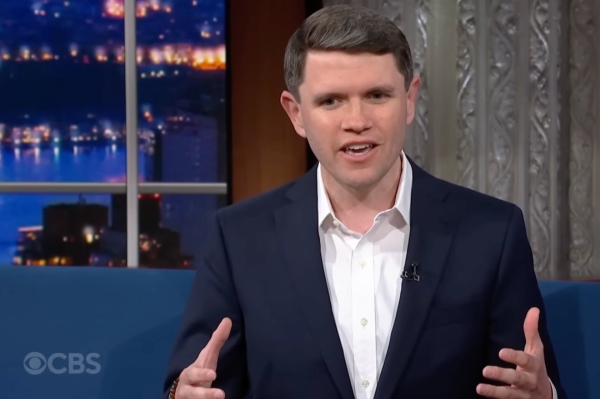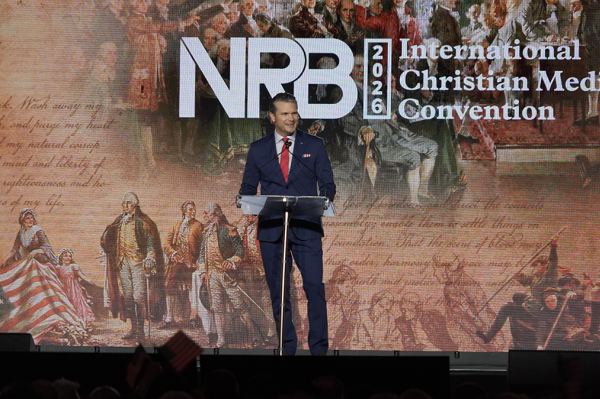Richard Mouw Gets Mauled by Mormonism

Richard Mouw is the former president of Fuller Theological Seminary, and he has spent years searching for a way to merge Mormonism with Christianity. Unfortunately for Mouw, blending two religions isn't quite as easy as he had hoped.
Mouw reminds me of the veteran Florida zookeeper who was mauled to death last Friday by a 13-year old male tiger she loved dearly. Stacey Konwiser was only 38 years old and was known as "the tiger whisperer." It is yet another tragic case of someone who was victimized by a wild animal she had devoted her life to helping. And it is reminiscent of what happened during a Las Vegas show in 2003 when a white tiger attacked stage entertainer Roy Horn.
Richard Mouw has built friendships with Mormon leaders, and this practice is commendable. Unfortunately, Richard has also befriended the tiger of Mormon doctrine. And Mormonism has been mauling Mouw's theology as Richard continues to underestimate the spiritual danger possessed by this wild beast.
Mouw's latest encounter with this tiger is detailed in an article he wrote entitled, "Mormons Approaching Orthodoxy," written for the publication First Things.
The word "orthodoxy" in this context refers to "generally accepted Christian doctrine."
For example, Fuller Seminary's "Statement of Faith" begins with the foundational doctrine of the Trinity: "God has revealed Himself to be the living and true God, perfect in love and righteous in all His ways, one in essence, existing eternally in the three Persons of the Trinity: Father, Son, and Holy Spirit."
The doctrine of the Trinity is accepted and taught by Christians around the world. And it is essential to Christian orthodoxy and Christian practice.
One reason it is essential to orthodoxy is because those who truly accept the Gospel also come to accept the doctrine of the Trinity. No one who is spiritually reborn rejects this doctrine. Such a blasphemous sin against Christ and the Holy Spirit cannot survive within someone whose body has become a "temple of the Holy Spirit." (1 Cor. 6:19)
Rejecting the doctrine of the Trinity becomes as damning to the soul as a rejection of Christ as Messiah. Either of those positions are enough to keep a person outside the kingdom of God.
This leads us to Richard Mouw's fanciful opinion that Mormon doctrine is "approaching orthodoxy." The title of his piece would suggest that Mormon leaders are rethinking the first article of their religion.
The first article of Mormonism states: "We believe in God, the Eternal Father, and in His Son, Jesus Christ, and in the Holy Ghost."
The Mormon organization views the Father as eternal, whereas Jesus is thought to be a created being. Right out of the gate, Mormon doctrine demonstrates why it is light years away from Christianity. Mormonism rejects the doctrine of the Trinity.
In his article, Richard Mouw chose to focus on this Mormon phrase: "As man is, God once was. As God is, man may become." Mouw seems to now think that some Mormon leaders may not actually embrace this idea.
But even if that's the case, how does it solve the Mormon problem concerning the Trinity?
Even if some Mormon leaders stop believing that God was once a man, they still would need to accept the fact that God exists eternally in the three Persons of the Trinity. And there is not a shred of evidence that the Mormon hierarchy is willing to repudiate the first article of their faith, and replace it with orthodox Christian Trinitarian doctrine.
Fuller Seminary and the Mormon organization both begin their doctrinal statement by explaining the nature of the deity they worship. And there is no way to reconcile these different deities because we are talking here about the One true God. We are not talking about the preferred age for baptism; or a particular view of the end times; or even the style of worship you utilize.
It is imperative to land on the side of truth when talking about the nature of the Creator.
Sadly, Mouw's article leads a person to wonder how seriously he takes the doctrine of the Trinity. For example, Mouw writes, "Take the case of Ralph Waldo Emerson's daughter Ellen Tucker Emerson. She was a Sunday school teacher at the large Unitarian church in Concord and organized Bible studies in the Emerson home."
And then Mouw offers this zinger: "Her Christology was Arian, but she firmly believed that Jesus was the Savior sent from heaven — not quite a member of the Godhead but of a status higher than the angels .... Without a doubt, her Unitarian system of theology gravely impaired her ability to express an orthodox view of Christ's identity. But was her Christocentric view of salvation negated by her rejection of the doctrine of the Trinity?"
Come again. "Her Christology was Arian," but Mouw seems to feel that such a belief is acceptable because she organized Bible studies.
Let's break it down. Arianism was a 4th century heresy that was completely rejected by the Christian church. Arius taught that only God the Father was eternal, and that Jesus Christ was a created being. The Nicene Creed was adopted by the church in response to the Arian heresy.
Sound familiar? Mormonism teaches the same heresy.
When describing Ellen Emerson's faith in an "Arian" Jesus, Mouw seems to think that such faith can save your soul. I wonder what ever gave him that idea.
If your Christology is Arian, the Holy Spirit will not come to live within you because you already have a false god living in your soul. The blasphemous doctrine that Jesus is a created being is a doctrine that keeps people from receiving the Holy Spirit through faith in Christ. And this false doctrine is a wild beast that must be euthanized in a person's heart before he or she can actually meet the real Jesus.
Mouw even had the audacity (or the delusion) to ask, "Was her Christocentric view of salvation negated by her rejection of the doctrine of the Trinity?"
It is unimaginable to me that someone who claims to hold to the historic Christian faith would ask such a warped question.
Emerson's "Christocentric" view of salvation was rooted in a "created Jesus." This heretical belief keeps a person outside of God's family. If you place your faith in an "Arian" version of Christ, it is impossible to have a true "Christocentric view of salvation."
Mouw's question was essentially, "Can believing a false doctrine about the nature of Christ be negated by rejecting the doctrine of the Trinity?"
That level of confusion is astounding my friend. But I guess it is where you can end up if you are determined to blend an Arian, non-Trinitarian view of God with the Christian doctrine of the Trinity. There is no compatibility in those doctrinal positions. And the Holy Spirit does not bear witness in Scripture or in the human soul to any teaching that rejects the eternal nature of Christ and the Trinitarian nature of God. The Creator exists eternally as three Persons in One God.
Mormonism and Christianity are at complete odds over the doctrine of the Trinity. No wonder the Christian church has never accepted Mormonism as one of its own. Christian theology has rejected Arianism for centuries, and rejected Mormonism from the day Joseph Smith introduced it into the world.
A more accurate title for Mouw's article might have been: "Richard Mouw Approaching Orthodox Mormonism." Perhaps Mouw finds himself getting closer to a personal belief in the gods of Mormonism.
The goal posts have been moved, but not in Scripture or in Christian theology. Instead, the theological goal posts have apparently been moved in the heart and soul of this former seminary president.
Mouw will eventually have to make a choice. Will he continue to believe what his seminary teaches about the nature of God in their first point of doctrine, or what the Mormon organization says in their first article about the nature of God?
It is no surprise that Mouw would conclude his essay by appealing once again to emotion rather than to the biblical doctrine of the Trinity. Mouw suggests that "we approach our conversations with Mormons with a trust that they genuinely 'mean' what they say — especially when they are singing Christ-adoring hymns."





















